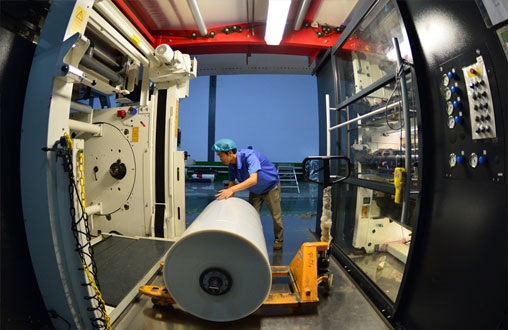
(Photo/Xinhua)
The role of foreign enterprises in China is still important, but it is quietly undergoing changes in terms of industrial structure, fields of investment, manufacturing capacity, and demand for talents.
Foreign enterprises have switched their development strategies from relying on China's low cost of labor and environment and preferential policies to high-end sectors, as China further opens its market and takes measures to introduce more foreign investment.
According to official data, in the first half of this year, the high-tech manufacturing sector saw inbound foreign direct investment (FDI) up 11.1 percent to 34.97 billion yuan ($5.2 billion), while foreign investment in high-tech services rose 20.4 percent to 64.72 billion yuan.
New advantages of the Chinese market are showing up, such as domestic, human resources, associated industries, and infrastructure, according to Samsung China President Zhang Yuanji.
Zhang said Samsung is actively looking for investment opportunities in high-tech, green, and modern service industries in China. Currently, the company has put $18 billion, out of a total investment of $30 billion, into manufacturing semiconductors, liquid crystal display panels, power batteries, and other products. Zhang explained the concentration on high-end sectors aims to offering a hand to China's demand for industrial upgrade.
Siemens China President Lothar Herrmann said the company will respond to "Made in China 2025" and "Internet Plus" strategies, share its experience in establishing digital enterprises, and support China's industrial transformation and upgrade.
The development and growth of big data is seizing the attention of foreign enterprises. For instance, chip magnate Intel is working to become a data company. Wang Hongbin, vice president of Law and Policy Group General Counsel of Intel China, said China is set to become home to the largest number of data property in the world.
The company has the most complete overseas business layout in China and is working closely with local governments, companies, and institutions. "Intel will continue to use its innovative technologies to help facilitate China's national strategies," Wang said.
In 2013, Siemens built a production and research center in Chengdu, capital of southwest China's Sichuan province. The factory is now capable of producing over 2.5 million industrial automation products per year.
Intel has factories in Shanghai, Chengdu, and Dalian, helping to boost local industries and cultivate a large number of talents for those cities. In 2015, the company announced $5.5 billion investment to upgrade the Dalian factory in northeast China within 20 years.
The foreign companies have also helped to cultivate talents in China. From 2011 to 2015, Siemens invested 711 million yuan to foster talents. In 2016, the company inked an agreement with China's Ministry of Education to cultivate innovative talents for the "Made in China 2025" national strategy. By the end of 2015, the company had an estimated 4,500 researchers and engineers in China.


















































